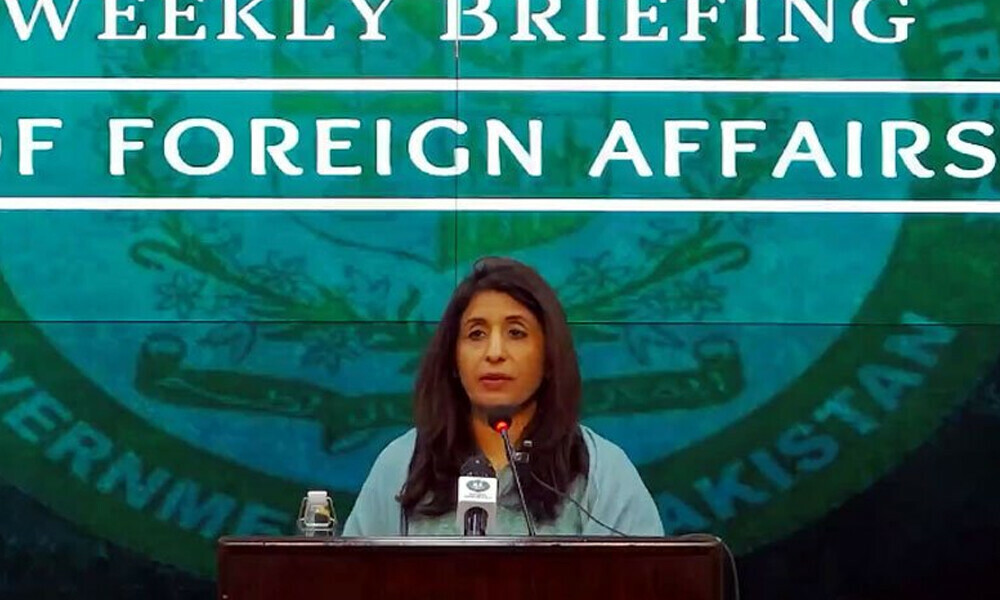UN experts issued a stern warning on Friday, stating that countries enabling Israel’s “unlawful occupation” of the Palestinian territories and offering support despite warnings of war crimes and possible genocide in Gaza should be considered “complicit.” The experts emphasized that aiding Israel in any way during this critical period, whether through military, political, or financial support, could make these nations responsible for the violations of international law.
The statements came in a new legal position paper released by the United Nations Independent International Commission of Inquiry on the Occupied Palestinian Territory, including East Jerusalem, and Israel. This commission, established by the UN Human Rights Council, has been tasked with investigating violations of international law in the region. According to the commission, not only does Israel bear responsibility for its actions, but all states that support Israel in maintaining the occupation are also accountable.
ICJ Opinion on Israel’s Occupation
At the core of the commission’s argument is the International Court of Justice’s (ICJ) advisory opinion, which declared Israel’s occupation of Palestinian territories since 1967 as “unlawful.” The commission underscored that Israel’s “internationally wrongful acts” have significant implications, not just for the country itself, but for all nations interacting with it.
Navi Pillay, the head of the commission and a former UN High Commissioner for Human Rights, elaborated on this point, stating, “Israel’s violations of international law impose responsibilities on the entire international community, not just on Israel. Nations that continue to assist Israel’s occupation in any way are violating their own obligations under international law.”
This assertion draws from long-standing international legal norms that obligate nations to refrain from recognizing or supporting violations of international law. Pillay pointed out that countries that continue to recognize Israeli settlements in the occupied Palestinian territories or offer diplomatic, financial, or military assistance to Israel, in fact, enable these violations.
UN General Assembly Vote and Its Implications
The commission’s report also delves into the significance of a recent UN General Assembly vote, which called for an end to Israel’s occupation within a year. This vote, though symbolic, carries significant legal weight. According to the commission, the vote reiterates that Israel is under a binding international obligation to halt all settlement activities and dismantle existing settlements at the earliest possible opportunity.
“Israel must immediately adopt a comprehensive plan to evacuate all settlers from the occupied territories,” said the commission’s report. This obligation goes beyond mere cessation of settlement activity; it calls for the full restitution of land, title, and natural resources to the Palestinian people, who have been displaced since 1967.
International Obligations for Other Countries
The report doesn’t only focus on Israel’s obligations but also on those of other nations. Countries around the world, the commission said, are required to fulfill specific legal duties concerning Israel’s occupation. These obligations include the responsibility not to recognize any territorial or sovereignty claims Israel makes over the occupied Palestinian territories. In particular, Pillay highlighted the contentious issue of Jerusalem, stating that no country should recognize it as the capital of Israel or establish diplomatic missions there.
Furthermore, the commission clarified that nations must distinguish between Israel and the Occupied Palestinian Territory in all dealings, a measure aimed at ensuring that Israel’s occupation is not normalized or supported. Countries that provide direct or indirect assistance to Israel—whether financial, military, or political—could be viewed as aiding in the unlawful occupation, which is a violation of international law.
War Crimes and Genocide Concerns
The most alarming aspect of the commission’s report centers on the possibility of genocide in Gaza. The commission drew attention to provisional measures issued by the ICJ in a case brought by South Africa, which accuses Israel of committing acts of genocide against Palestinians in Gaza. The ICJ has instructed all states to take steps to prevent genocide, a ruling that the commission emphasized must be respected.
The commission issued a stark warning to the international community, cautioning that countries failing to comply with their obligations under the Genocide Convention could be seen as complicit in the crime of genocide. This would especially be the case if they directly aid Israel in maintaining the occupation or if they fail to act in compliance with the ICJ’s orders to prevent further atrocities.
“States may be complicit in failing to prevent genocide if they do not act in compliance with court orders and directly assist or aid in the commission of genocide,” the report warned.
Israel’s Response
Israel has consistently rejected the findings and authority of the UN commission, accusing it of systematic bias and unfair targeting. Israeli officials argue that the commission overlooks violence perpetrated by Palestinian groups and fails to account for Israel’s right to self-defense. Israel has also criticized the ICJ advisory opinion and the UN General Assembly vote, claiming both are politically motivated and ignore the complex realities on the ground.
The Israeli government has stated that its policies in the occupied territories are necessary for national security and survival in a hostile region. It insists that the settlements are legally defensible, citing historical and biblical claims to the land, though these claims are widely rejected by the international community.
The commission’s report presents a complex and contentious path forward. While it reiterates the illegality of Israel’s occupation and the need for international action, it also poses difficult questions for countries that have long-standing alliances with Israel. Nations that continue to provide Israel with military and financial support, particularly the United States, may find themselves increasingly at odds with international legal obligations as outlined by the commission.
The report also underscores the importance of global unity in addressing these violations. Without concerted international pressure, the commission suggests, Israel is unlikely to change its policies, and the cycle of violence and displacement in the region will continue unabated.
The United Nations commission called on the international community to take bold steps in holding Israel accountable for its actions. It remains to be seen how the world will respond to these calls, and whether the situation in Palestine will see meaningful changes in the near future.



